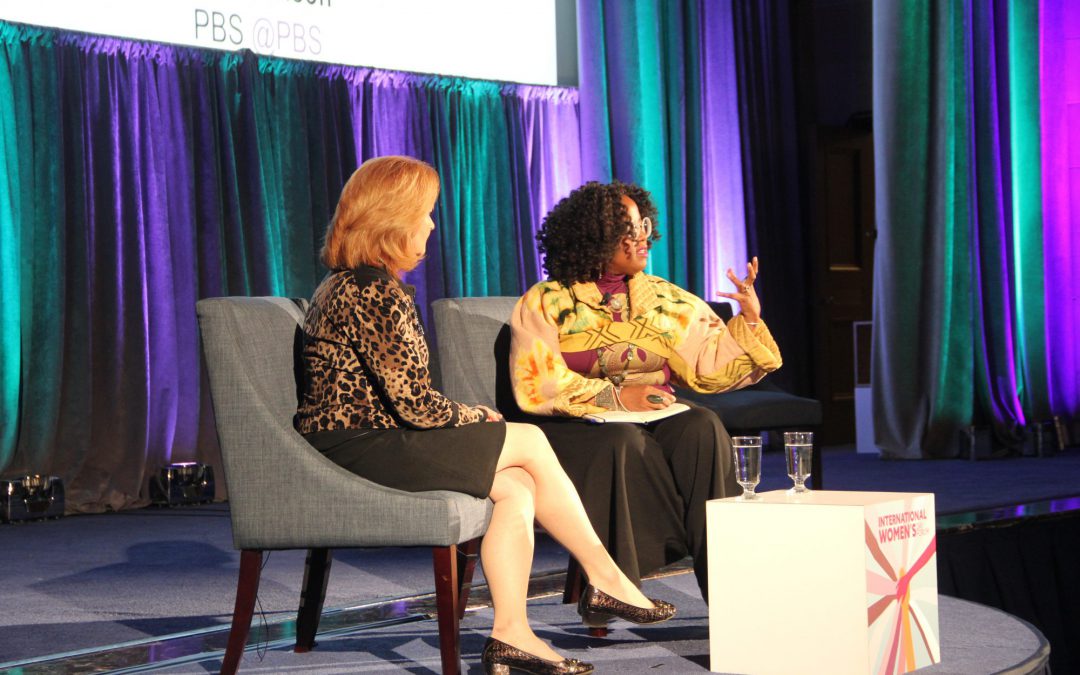WASHINGTON – Companies need to have long-term strategies to ensure change resulting from the #MeToo movement doesn’t fade away, panelists said Tuesday at a U.S. Chamber of Commerce forum in honor of International Women’s Day. In the wake of several recent high-profile business executives who were ousted over sexual harassment allegations, PBS journalist Marie Nelson and author Anne Doyle said the current moment is an opportunity for women to be courageous and vocal in standing up to inequality.
“Something needs to happen more in the grassroots level at our organizations, and that is creating the opportunity for people to talk about this,” Nelson said. “Many people want to do the right thing, but they are uncomfortable with the lines that are being redrawn in front of them.”
Several organizations, such as Ford Motor Co. and VICE Media, have recently faced widespread criticism for how they’ve handled sexual harassment complaints over the years. A former VICE employee sued the organization, claiming that the company has systematically discriminated by gender and pays its female employees significantly less than men. Former Ford president and 30-year employee Raj Najir stepped down after allegations of inappropriate behavior, and reports have said a sexual harassment culture within the company is widespread.
“There is absolutely no room for harassment in Ford Motor Co.,” Ford CEO Jim Hackett said in an open letter. “We don’t want [harassers] here, and we will move you out for engaging in any behavior like this.”
Doyle, who is a former Ford executive, said that, even today, women often face consequences for speaking up in male-dominated industries. But because of the #MeToo movement, young women should have more traction in pointing out transgressions without being punished, she
“It’s the millennials who are leading the #MeToo movement right now,” Doyle said. “It’s those young women who are raising their voices now, and saying, “You mean you tolerated this for decades?’ Yes, we did, because we didn’t have the voice that we do now.”
Some companies have responded to the #MeToo movement by enacting measures limiting mixed-gender travel or one-on-one interaction between male and female colleagues. These measures have been dubbed offshoots of the “Mike Pence rule,” the vice president has said he does not dine alone with women nor does he work late with any female aides, which is an approach both panelists said is not the solution. Instead, the key is working \with men to draw attention to problems inherent in many organizations’ cultures.
Patsy Doerr, global head of sustainability and inclusion for Thomson Reuters, said #MeToo said those longstanding problems would have festered without a change agent like #MeToo.
“I think that the #MeToo movement had to happen,” Doerr said. “There are pent-up issues in the workforce that really had to come out, and we needed to give people a voice. My call to action would be to encourage women to have a voice publicly: Have a voice and take action.”
The World Economic Forum ranked the U.S. 49th in gender equality last year, which Doyle called a harrowing assessment.
“We have to be a lot more courageous within our organizations about being activists,” Doyle said. “It’s not enough to tweet about it; it’s about standing up right now and standing shoulder to shoulder and saying ‘I’m in.’ Time’s up, me too, let’s make our corporations and our culture much better.”

